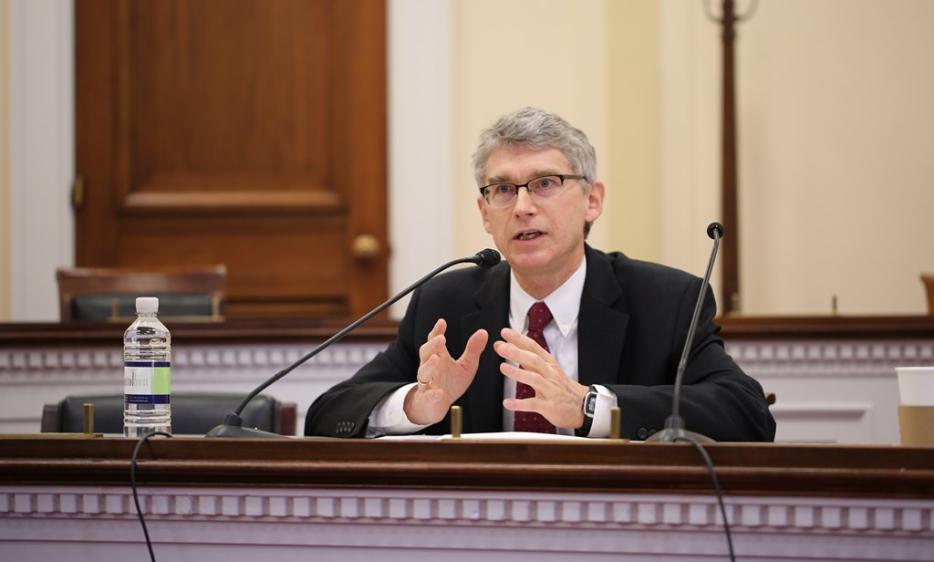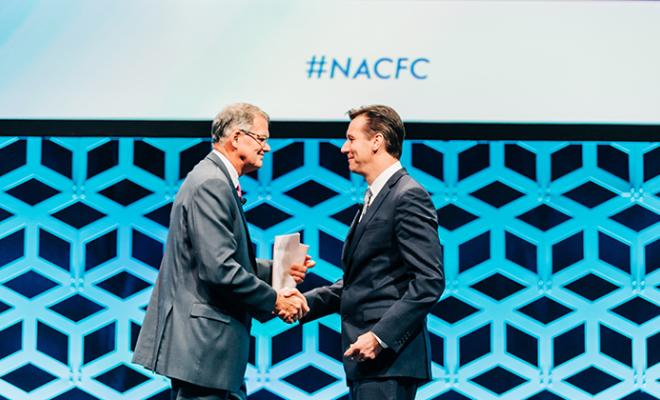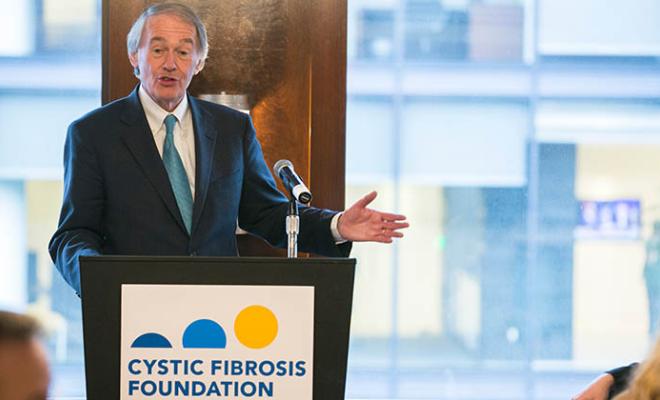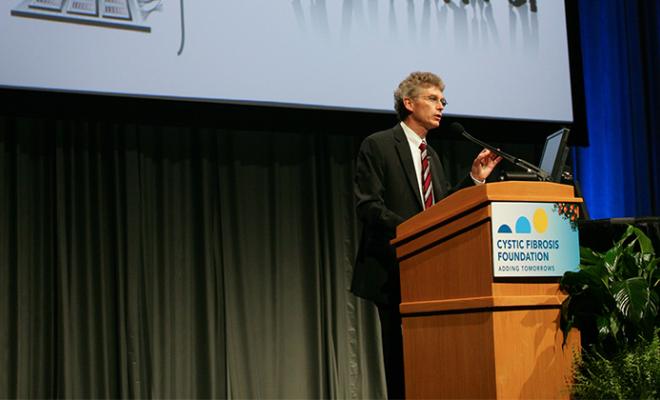We talk a lot about the cystic fibrosis community: the individuals fighting the disease, their families and care teams. In today's blog, we're going to talk about CF researchers in our community and why they're concerned about decreases in federal funding for the National Institutes of Health (NIH). Adjusted for inflation, NIH receives 22 percent less funding than it did in 2003, which is concerning to the entire scientific community.
William R. Skach, M.D., our senior vice president of research affairs, is well-versed on the challenges of NIH funding. He hosted a panel discussion on December 8 on Capitol Hill to educate members of Congress and legislative staff on advances in CF treatments and personalized medicine that have changed the lives of those with the disease.
The panel, which included representatives from government and industry and an individual with CF, also discussed the importance of NIH research in forming the bedrock of advances in CF treatment. Of particular interest was the importance of providing robust funding for NIH to support basic research.
We sat down with Dr. Skach to learn more about why the work being done at NIH is so important in the search for a cure for CF and other serious, rare diseases.
How do NIH's research efforts complement or interact with what the CF Foundation is doing?
NIH provides the foundational support for basic investigation laboratories to survive, develop and flourish. These laboratories explore many different areas of science, and the CF Foundation has been very successful in identifying the researchers who are working on critical problems that we think are important for CF.
We can take the discoveries those scientists have developed and then apply that expertise to CF. It is like building a house on a solid foundation. NIH is critical to setting the stone in place. Then, private foundations like the CF Foundation and others can come in and erect the structures. This partnership has played out time and time again and is really the basis for many of the success stories in modern medicine.
The true basic studies required to understand the underlying biology are most often supported through NIH-funded research. Over the decades, this has had enumerable benefits for disease-based treatment, especially in the CF community, and also the types of researchers we're able to recruit and the technologies we're able to bring to CF.
Why is the work being done at NIH so important in the fight against CF?
NIH funding is critical because it is the main supporter of research that contributes to our knowledge of the underlying biology of cystic fibrosis. Often, NIH-supported scientists are not studying CF specifically, but they are learning how cells and proteins work and how fluids and molecules move through tissues in a more general sense.
NIH researchers ask fundamental questions that are incredibly important to CF research even if they may not directly relate to CF. The knowledge they gain and the discoveries they make can be applied to cystic fibrosis and hundreds, if not thousands, of other diseases.
NIH also plays a large role in developing a well-trained, well-prepared scientific workforce, which is essential to the success of medical research. Without continued investment in NIH, we couldn't move forward on the path to new cystic fibrosis discoveries.
Can you tell me more about basic research and why it is especially important? Why couldn't CF researchers study these things on their own?
That's a great question, and the best answer is truly that we just can't predict what discoveries will come from basic research. A great example is gene editing. Gene editing got its start partially in the commercial yogurt industry because of the need to develop bacteria that could resist certain viral infections.
This is how so much of basic research works. The enzymes that are now being used to edit genomes started out as nothing more than a scientific curiosity. It was only years later that someone recognized this technology could actually be used for other things. Now it's revolutionized many aspects of medicine, including potential treatments for cystic fibrosis.
It takes an agency with resources and a broad mission to focus on and study the fundamental principles. NIH does that on a regular basis. The CF Foundation can take these discoveries, direct them and move them toward CF.
This role is unique to NIH, and it is a major reason why America has become the major biotech and biomedical research leader in the world.
Congress is currently finalizing the federal budget for NIH and other agencies. Encourage your member of Congress to support funding for NIH today.






